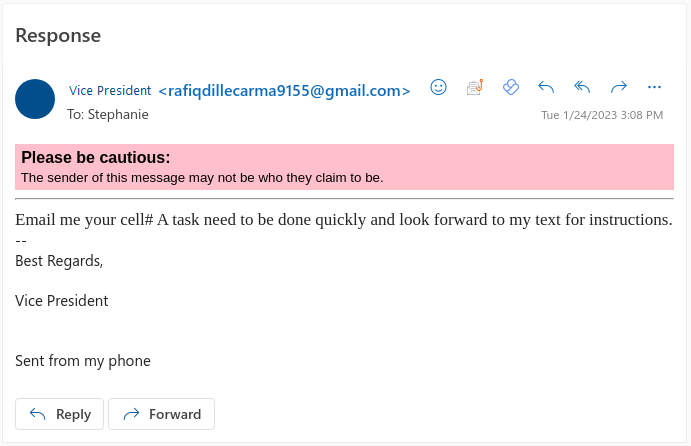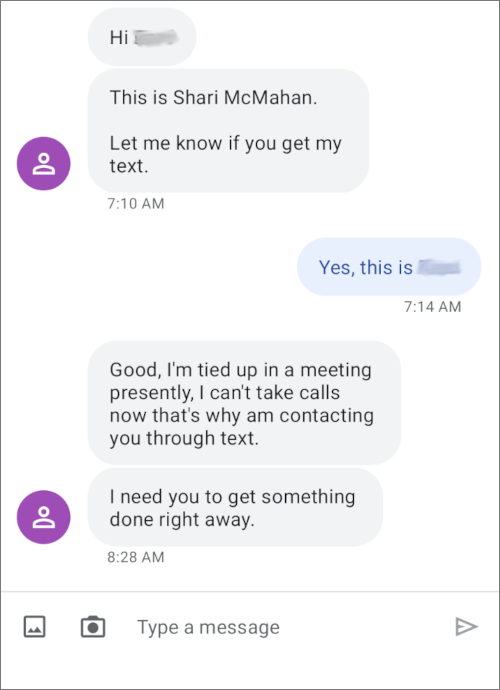Impersonation and Gift Card Scams
Messages claim to be from someone important that you know
Gift card scams start with an email or text message appearing to be from a high-level executive, dean, department chair, supervisor, or colleague. Scammers use impersonation to make you believe that you are communicating with someone you know. Often, this is done by simply changing the Display Name on a random email address. You may receive a text message from a number that you don't recognize but the sender claims to be someone important that you know.
Messages convey a sense of urgency
Scam messages use language that convey a sense of urgency. The sender may ask for your cell number in an attempt to take the conversation outside of university systems. The message typically asks you for a favor because the sender is in a meeting and currently unable to take calls. After a few exchanges the sender asks you to purchase gift cards and send them the activation codes. The sender promises to pay you back as soon as they are back in the office.
Messages don't align with normal business practices
Ask yourself, "would this person really ask me to do this?" If you're unsure, contact the sender using verified contact information from EWU's directory (don't reply to the suspicious email or text). Call and speak to them directly, don't just rely on text or email communication.
- Don't purchase gift cards.
- Do not purchase electronic gift cards and send them over email.
- Do not take photos of gift cards and send them over email or text.
- Do not scratch off the backs of gift cards and send the codes over email or text.
Messages should be reported.
Please report suspicious messages to infosecurity@ewu.edu so we can take action if needed
Example Messages

